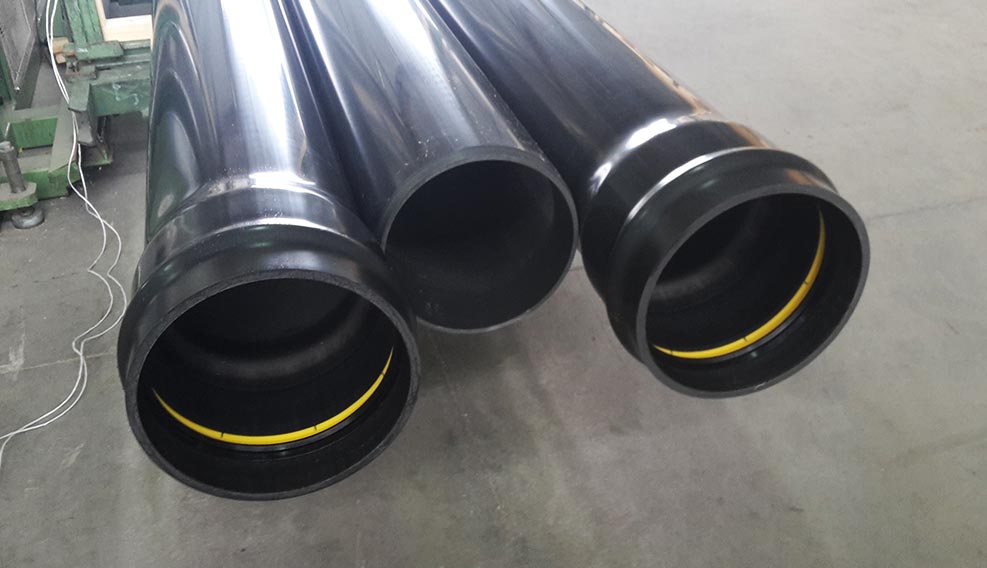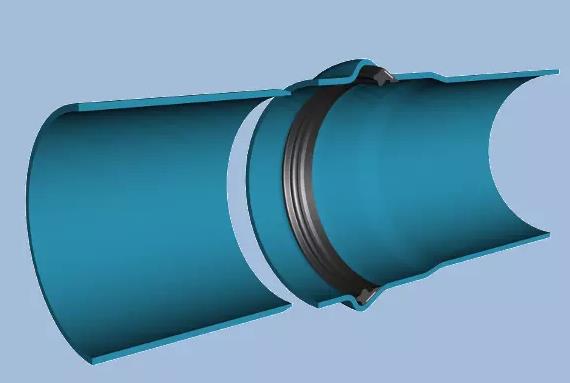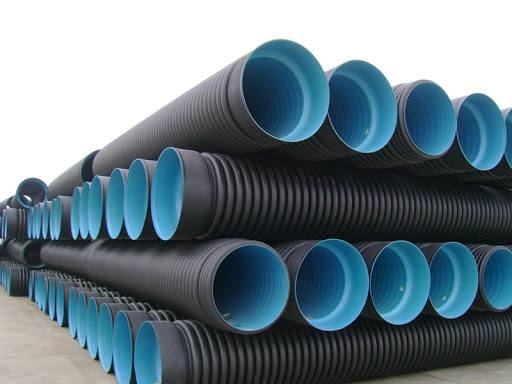PVC (Polyvinyl Chloride) pipe seals are essential components in plumbing and construction applications, serving the critical function of preventing leaks and ensuring the integrity of water, sewage, and drainage systems. These seals, also known as pipe gaskets or pipe joints, are made from PVC material, which is a versatile and widely used thermoplastic polymer known for its durability, chemical resistance, and affordability. This very long description will delve into the various aspects of PVC pipe seals, their applications, properties, installation methods, and benefits.
1. Material Composition:
PVC pipe seals are typically composed of high-quality PVC material. PVC is a synthetic plastic polymer that is known for its exceptional chemical resistance, making it highly suitable for a wide range of environments. It is also non-reactive with most substances commonly found in plumbing systems, ensuring long-term reliability.
2. Types of PVC Pipe Seals:
There are several types of PVC pipe seals available, each designed for specific applications and pipe sizes. These include:
a. PVC Socket Seals: These seals are designed for joining two pipes with socket ends. They provide a secure and leak-proof connection.
b. PVC Coupling Seals: Coupling seals are used to connect two pipes with couplings or connectors. They ensure a tight and watertight connection.
c. PVC Threaded Seals: Threaded seals are used for pipes with threaded ends, ensuring a secure and leak-free connection when screwing pipes together.
d. PVC Expansion Joint Seals: These seals accommodate the expansion and contraction of pipes due to temperature fluctuations, preventing stress and leaks.
3. Key Properties:
PVC pipe seals offer a range of desirable properties, including:
a. Chemical Resistance: PVC is resistant to a wide range of chemicals, acids, and alkalis, making it suitable for various industrial and chemical applications.
b. Durability: PVC seals are known for their long service life and resistance to corrosion, rust, and degradation.
c. Flexibility: PVC is a flexible material, allowing for easy installation and adaptability to different pipe configurations.
d. Temperature Resistance: PVC pipe seals can withstand a broad temperature range, making them suitable for both hot and cold water systems.
e. Ease of Installation: They are relatively easy to install, typically requiring minimal tools and expertise.
4. Applications:
PVC pipe seals find applications across various industries and settings, including:
a. Residential Plumbing: PVC seals are commonly used in residential plumbing systems for connecting water supply lines, drainage pipes, and sewer lines.
b. Commercial and Industrial Plumbing: In larger-scale plumbing systems, such as those in commercial buildings, factories, and industrial facilities, PVC pipe seals are essential for ensuring efficient and leak-free operations.
c. Agriculture: PVC pipe seals are used in agricultural irrigation systems, providing reliable connections for water distribution.
d. Municipal Infrastructure: Municipal water supply and sewage systems rely on PVC pipe seals to prevent leaks and maintain water quality.
e. Pool and Spa Construction: PVC pipe seals are vital for connecting pipes in pool and spa plumbing systems.
5. Installation Methods:
Installing PVC pipe seals involves the following steps:
a. Clean the Pipes: Ensure the pipe ends are clean and free from debris, dirt, and moisture.
b. Apply Lubricant: Apply a suitable lubricant to the seal to facilitate a smooth and secure connection.
c. Insert the Seal: Insert the seal onto one end of the pipe.
d. Connect the Pipes: Join the pipes by pushing or threading them together, making sure the seal is properly seated.
e. Test for Leaks: Conduct a pressure test to ensure the seal provides a leak-free connection.
6. Benefits of PVC Pipe Seals:
PVC pipe seals offer numerous advantages, including:
a. Cost-Effective: PVC seals are cost-effective compared to many other materials, making them an economical choice for various applications.
b. Longevity: They have a long service life and resist degradation, reducing the need for frequent replacements.
c. Low Maintenance: PVC pipe seals require minimal maintenance, contributing to lower overall costs.
d. Environmental Compatibility: PVC is recyclable, and some manufacturers produce eco-friendly PVC pipe seals with reduced environmental impact.
e. Versatility: PVC pipe seals are suitable for a wide range of pipe sizes and configurations, enhancing their versatility in various applications.
In conclusion, PVC pipe seals are indispensable components in plumbing and construction, offering a durable, reliable, and cost-effective solution for joining pipes, preventing leaks, and maintaining the integrity of fluid conveyance systems across multiple industries and applications. Their exceptional properties and ease of installation make them a preferred choice for professionals and DIY enthusiasts alike.










